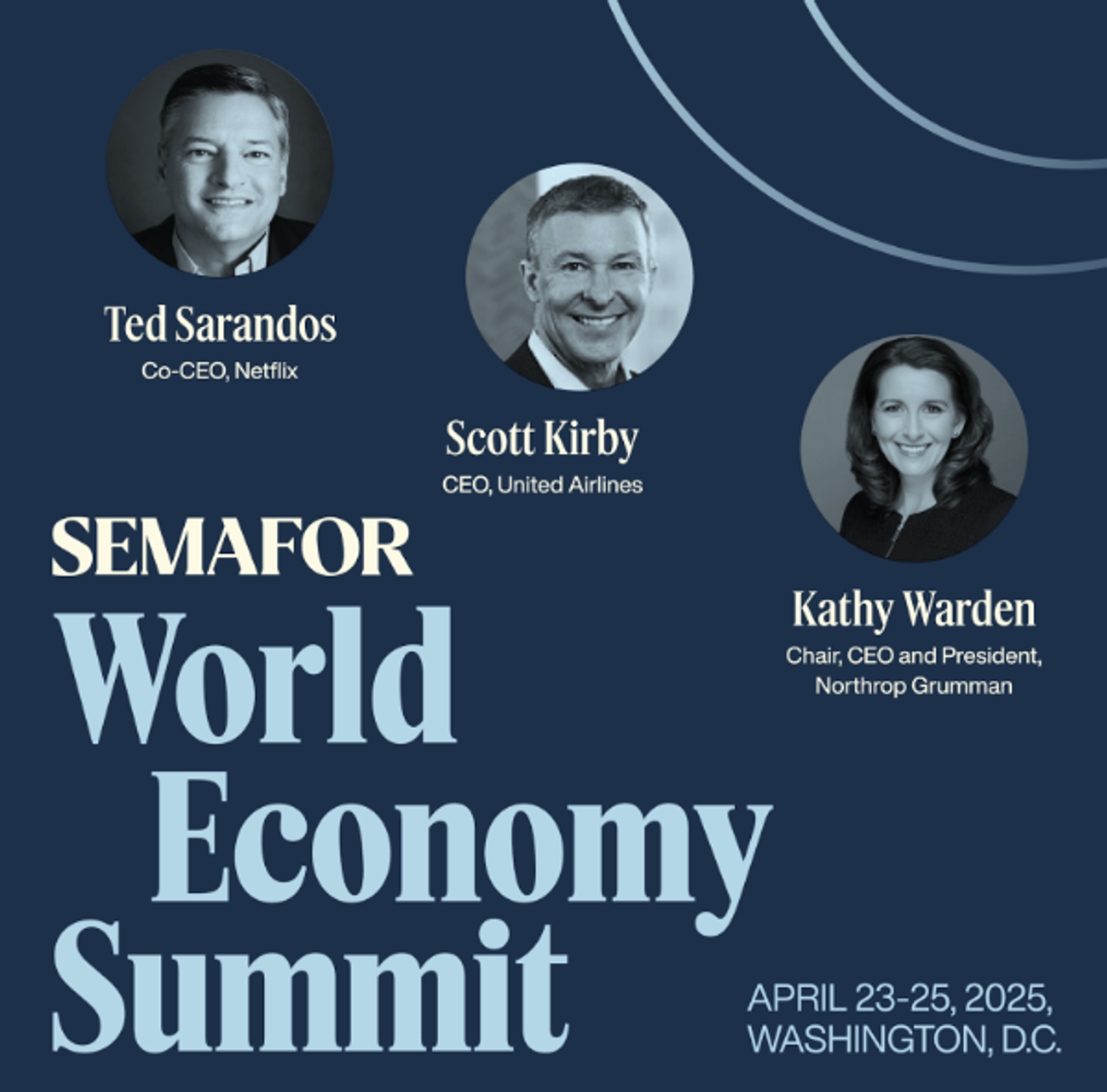 Semafor’s 2025 World Economy Summit will bring together U.S. Cabinet officials, global finance ministers, central bankers, and over 200 CEOs of the world’s largest companies. The three-day summit will take place April 23–25, 2025, in Washington, DC, and will be the first of its kind since the new US administration took office. Featuring on-the-record conversations with top executives, including Ted Sarandos, Co-CEO, Netflix; Scott Kirby, CEO, United Airlines; and Kathy Warden, Chair, CEO and President, Northrop Grumman, the discussions will explore innovative solutions for expanding the global economy. Apr. 23–25, 2025 | Washington, DC | Join Waitlist |